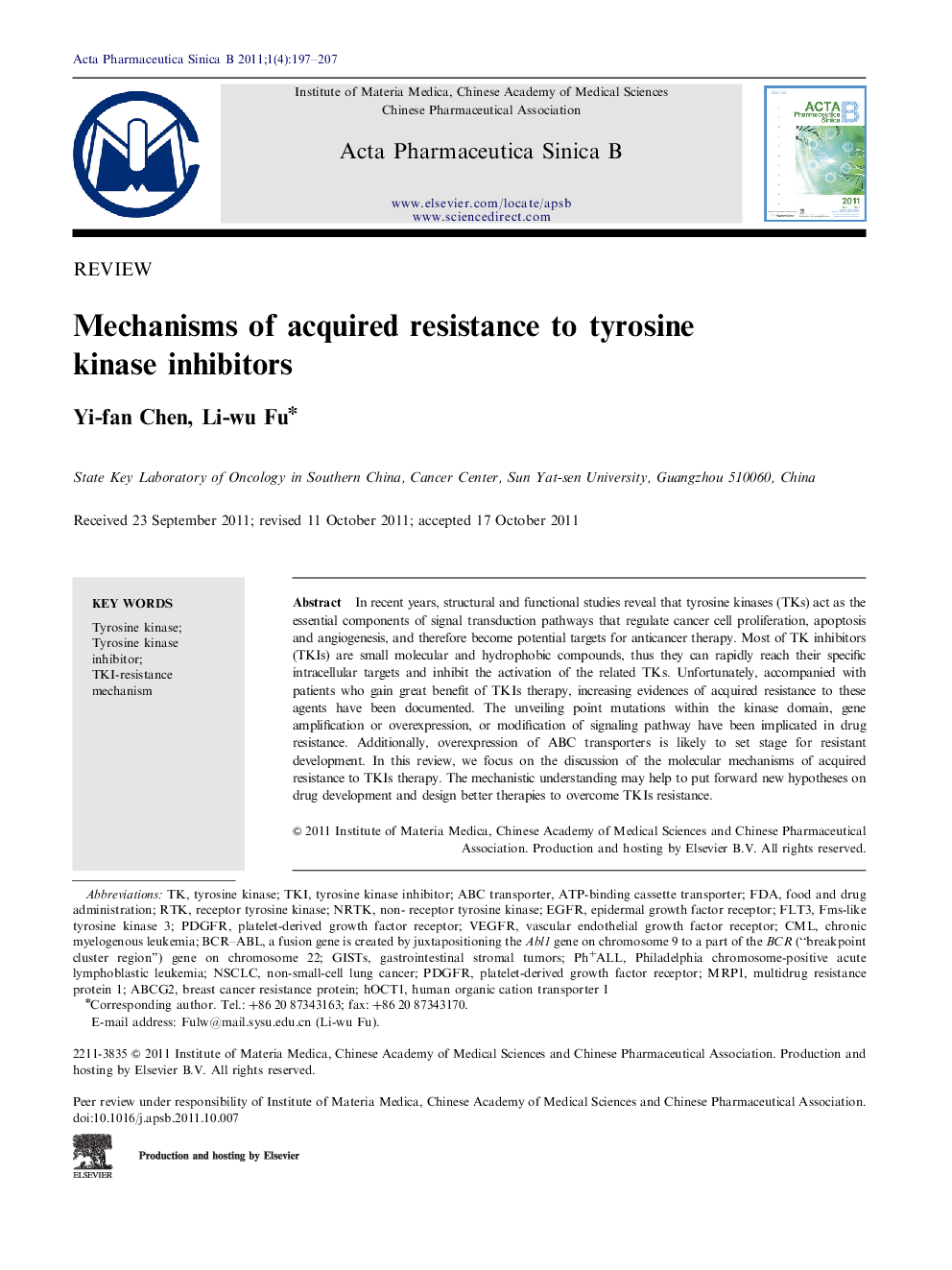| Article ID | Journal | Published Year | Pages | File Type |
|---|---|---|---|---|
| 2474822 | Acta Pharmaceutica Sinica B | 2011 | 11 Pages |
In recent years, structural and functional studies reveal that tyrosine kinases (TKs) act as the essential components of signal transduction pathways that regulate cancer cell proliferation, apoptosis and angiogenesis, and therefore become potential targets for anticancer therapy. Most of TK inhibitors (TKIs) are small molecular and hydrophobic compounds, thus they can rapidly reach their specific intracellular targets and inhibit the activation of the related TKs. Unfortunately, accompanied with patients who gain great benefit of TKIs therapy, increasing evidences of acquired resistance to these agents have been documented. The unveiling point mutations within the kinase domain, gene amplification or overexpression, or modification of signaling pathway have been implicated in drug resistance. Additionally, overexpression of ABC transporters is likely to set stage for resistant development. In this review, we focus on the discussion of the molecular mechanisms of acquired resistance to TKIs therapy. The mechanistic understanding may help to put forward new hypotheses on drug development and design better therapies to overcome TKIs resistance.
Graphical abstractThis review focuses on the discussion of the molecular mechanisms of acquired resistance to TKIs therapy, which may help to put forward new hypotheses on drug development and design better therapies to overcome TKIs resistance.Figure optionsDownload full-size imageDownload as PowerPoint slide
